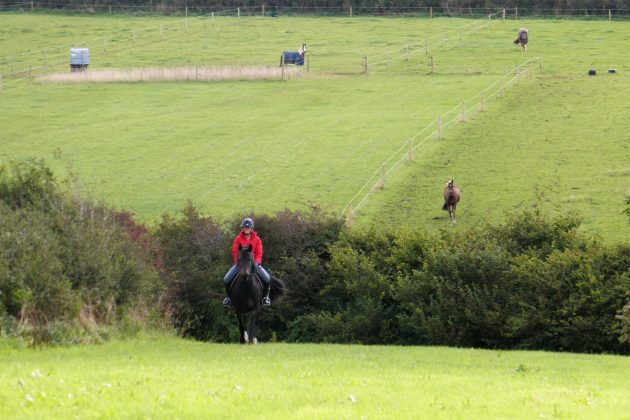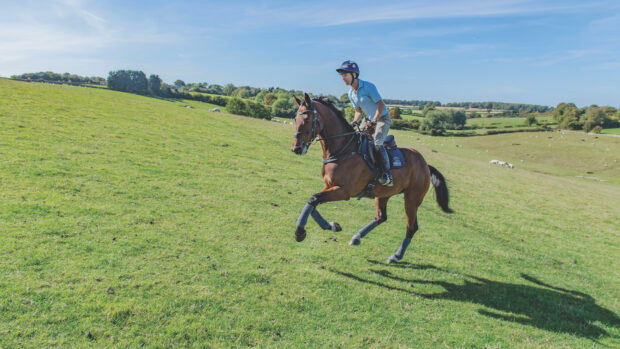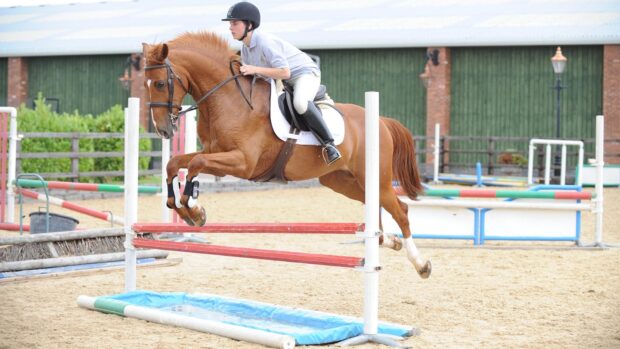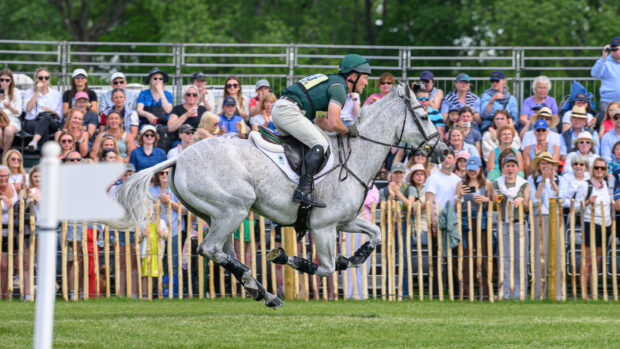A significant amount of planning and preparation goes into getting ready for an eventing competition. From fitness programmes to lessons, new kit to travel arrangements, you have probably spent weeks (if not months) gearing up for the big day. But have you given any thought to what you will do with your horse the day before the event? We investigate further.
What to do with your horse the day before an event
Should you be running through your dressage test, popping him over some jumps or giving him a day off? We talk to some top riders and trainers to find out what the ideal preparation should be.
“If a horse doesn’t do anything the day before a competition, then they can often be too fresh at the event. I think it’s important for their well-being, suppleness and brain that they do something,” says British Eventing (BE) accredited coach Cindy Llewellyn.
Five-star event rider Georgie Goss agrees and will often jump her horses the day before a competition.
“It depends on their individual temperaments and needs, but generally the good jumpers will do a course and if they struggle with jumping then I will do some gridwork with them. I’ve always done it like that and it’s always worked,” explains Georgie.
“I always do something with my horses. There can be a lot of pressure at a competition, so if you jump them the day before it just takes the edge off them.”
Event rider Nat Dixon, who has completed Badminton and Burghley and was shortlisted for the Sydney Olympics, is not a fan of jumping her horses before they compete, instead preferring to school them.
“I don’t like to jump mine the day before as I think it stresses the muscles,” says Nat. “Unless they are really gifted, I won’t school them at a difficult level, I prefer to work them in a long, low frame and do a lot of lateral work. I’m not saying what I do is right, but it works for me.”
Individual preferences seem to be the key, with riders and trainers in agreement that it is important to do something with your horse the day before you take him to a competition, but there’s no set rule as to what that activity should be.
“We always work our horses the day before — they would never do nothing, but what work they do will vary by horse,” says Australian event rider Bill Levett. “Some may have a flatwork session, others might jump, or go for a piece of hill work or a lunge for a stretch. What they do will be tailored to the specific horse and what suits it in terms of a pre-event preparation.”
“We would not typically gallop a horse the day before it competes and if working towards a big three-day event we taper the work down and do our final ‘big’ prep gallop 10 days before the horse is due to run cross-country at its event,” adds Bill.
While it might not be a good idea to gallop your horse the day before, Cindy Llewellyn believes a brief canter can be advantageous for those event horses competing at the higher levels.
“At intermediate and above it can be a good idea to clear the horse’s airways by giving them a short, sharp canter the day before they go cross-country,” says Cindy. “I don’t think a horse needs an intense drilling but running through their dressage test can be useful to the rider, or going on a hack where they can stretch and you can do some leg yielding to work on their suppleness can be advantageous too.”
While riders and trainers advocate riding their horses the day before a competition, vet Leticia Macias Bricio from Wessex Equine Veterinary Practice doesn’t believe there is any significant risk to your horse’s physical well-being if he has a day off immediately before he competes.
“All horses need a day of rest and if that day happens to be the day before a competition I don’t think it’s a risky thing,” says Leticia. “It obviously depends on the level of competition and your horse, but ideally I would say you should make sure your horse moves the day before, don’t leave them in the stable all day, but don’t exhaust them — a light hack is a good idea.”
“Horses are routine animals so the most important thing is to keep things the same and make sure they stay relaxed,” concludes Leticia.
Bill Levett agrees: “We try to keep their routine unchanged as much as possible before or during or after a competition — they will live out if they are used to living out for example the night before an event.”
All horses are individuals and have different needs and preferences so ensure you know your horse and consider what works for him when planning what to do the day before a competition.
You may also be interested in…

How to form a fitness plan for your horse

Subscribe to Horse & Hound magazine today – and enjoy unlimited website access all year round
Horse & Hound magazine, out every Thursday, is packed with all the latest news and reports, as well as interviews, specials, nostalgia, vet and training advice. Find how you can enjoy the magazine delivered to your door every week, plus options to upgrade your subscription to access our online service that brings you breaking news and reports as well as other benefits.




